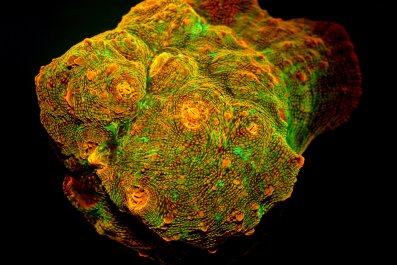You've barely settled into your seat at the South Korean revenge extravaganza The Villainess before arterial blood starts spraying across the screen. Liberace had the Dancing Waters; director Jung Byung-gil has the Dancing Carotids, crimson aerosols accompanied by the sssssss sound that signifies somebody's tank will soon be empty.
The film's intricately choreographed opening sequence is like a video game, with the audience taking the perspective of an unidentified assailant, shooting, stabbing and hacking their way through a warehouse of baddies. It's meant to be a shock when this killing machine stops in front of a mirror and we see: It's a female! Not only that, but a diminutive adolescent.
This will be less of a surprise to fans of Asian movies, with their long history of female action stars (Brigitte Lin, Michelle Yeoh, Maggie Cheung, Shu Qi, Maggie Q). What is entirely new about The Villainess is that it marries its revenge scenario to a melodrama of maternal sacrifice, with the film's terrific star, Kim Ok-bin, suffering more than Joan Crawford ever did.
Kim plays Sook-hee, trained to be a killer since childhood. The initial bloodbath is her revenge on the thugs who murdered someone she loved. Caught by South Korea's Intelligence Agency, she is forced into a sort of finishing school for sleeper-cell assassins. The movie borrows heavily from La Femme Nikita, and as in that 1990 film, Sook-hee can gain her freedom only by going back into the world to kill government targets. But in this case there's also an adored toddler, raised by Sook-hee during her training, which allows her handlers to apply extra incentive.
Somewhere amid the tears and gore is a potent idea about needing to kill your past to move on with your life. I have to confess to getting lost among the plot machinations, layers of betrayal and sometimes disorienting flashbacks. But I admired the blunt aggression of the melodrama and the kind of truly vicious mayhem that, as befits a great sick joke, makes you gasp and guffaw at the same time.
It also successfully unites two cinema archetypes—the suffering woman and the male bent on vengeance—in one character, allowing Sook-hee to be both unforgiving and vulnerable. That's what's missing from Atomic Blonde, the summer's other female revenge offering. Charlize Theron's agent is sent on a mission to retrieve a cache of information that could be embarrassing to Western intelligence; a more compelling motive would have been a quest to get the bastards who killed her lover. But the movie isn't conceived to allow Theron, an actress who has always suggested febrile intensity beneath a composed exterior, to mourn, even in those private moments that form the bond between character and moviegoer.
Atomic Blonde is still a triumph of style thanks to the sleek and steely Theron, but its hollowness is odd, given that the director, David Leitch, co-directed John Wick, a film that worked so well because the soulful Keanu Reeves was allowed to show his character's mournfulness as much as his thirst for vengeance. It's a combo that cuts to the heart of the low-down appeal of action movies, and The Villainess has it in bloody abundance.















